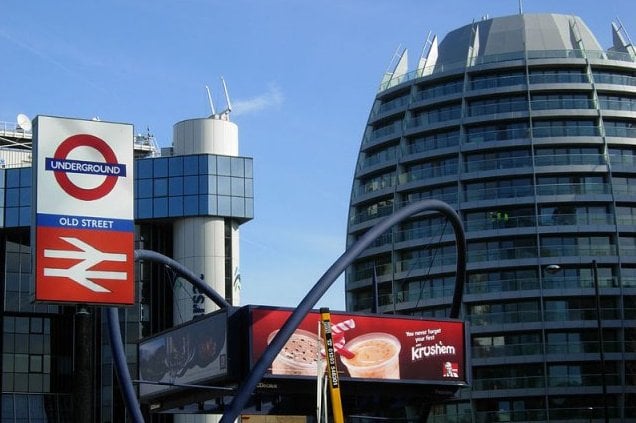
The shiny new buildings at Tech City in Islington
Creating a Non Tech City
With Tech City dwindling in the rearview mirror, Toks Majek-Akisanya sets his SatNav for a 'Non Tech City' where the action is centred around the creative industries.
OK, let's get this clear right up front, for my sins I am the CEO at CIDA and I would really like you to come to Cr8net, London's premier creative conference on Tuesday 1 July. So with that out of the way, we can focus on the article without me trying to wedge the name of my event in somewhere.
Tech City (satisfied sigh). I love the disestablishment verve of it, the sly grin of cool, the gentle roar of success, even the government feeding frenzy it excites. If it were a prone gladiator in the arena I would be shouting “Live, live!” But I am of the creative industries, of the arts, of diversity, of equality, of talent's indiscriminate distribution and try as I might, I am unable to fully embrace both…yet.
Why not hang our creative industry hats here while we shrink-wrap who we are and what we do into a sound bite
It is a given these days that East London is synonymous with the arts and the creative industries. For the last seven years I have worked from a building just off Brick Lane in the good old borough of Tower Hamlets. A hotbed of arts and culture, our office is almost literally cocooned by the stuff. Tech City is five minutes down the road.
Tower Hamlets is a contradiction. According to the End Child Poverty website, Tower Hamlets has the highest rate of child poverty in London, yet boasts one of London's two main financial centres. It is the third most deprived borough in the country, but has the second tallest building. It is, I thought to myself late last year, the quintessential ‘Non Tech City’. The council, looking to attract a little of the tech action enjoyed by its neighbour Islington, was understandably less than enthusiastic when I approached them with the concept last year. They can be forgiven for looking over the fence at the shiny edifice that is the White Collar Factory in Old Street and thinking "We could do that”.
Tech City is not a rose grown through the cracks in the pavement. It has its roots in land well tilled by the arts and the creative industries in and around the area. To paraphrase Richard Florida at the Cr8net conference a couple of years ago “Cities are the new factories”, I think we could pare that down to “Boroughs are the new factories” and it requires a diverse workforce with diverse skills, talents and abilities.
The ‘Non Tech City’ principle is simple. Tech without the arts and the creative industries leaves 1s, 0s and cream coloured boxes. After Apple had lapped them a couple of thousand times, IBM and Microsoft et al realised this, and the days of cream coloured computers and peripherals became folklore. It is not enough to have a better idea. Betamax proved that (if you are young enough to be asking what the hell is Betamax it's sort of my point); the availability of creative content in part propped up the inferior VHS tape technology. Look at the great tech companies. What would Instagram be without photography? YouTube without film and video? Spotify sans music? And any of these creative disciplines without technology? So if tech stock rises, that should produce a commensurate rise in creative industries stock. But right now it doesn't.
Now don't get me wrong. The tech start-ups themselves are not the issue; they understand and embrace creativity without any encouragement. After all, depending on where you like to draw the creative industries boundary, tech is a subset. Some say that what we need is a closer working relationship between arts and creativity and technology, but I am not sure that is the pressing point. Maybe we need to boil what we do down to the sort of bite-sized chunk that distils the many facets of technology to tech and then anchor that to one place, indeed one roundabout in Islington (Tech City). It is almost as if the techies employed a good PR company and advertising agency. The issue is the recognition gap between Tech City and Non Tech City, between technology and the arts by government, council and in some ways big business. The creative industries pack enough of a punch for a title shot, but we need to get in shape.
Given the diversity, the small business heritage, the culture and possibly the highest number of artists per square foot in London, why not make Tower Hamlets, scandals and politics aside, the anchor point of the Non Tech City revolution? Why not hang our creative industry hats here while we shrink-wrap who we are and what we do into a sound bite and give those that need to remember a real place to associate us with? So arise Tower Hamlets, unlikely hero, if a roundabout can be a 'city' then so can you. More diversity, more recognition for the arts, tech for all… I feel a group hug coming on…
Toks Majek-Akisanya is CEO of CIDA.
neoponic.co.uk/newcida
Join the Discussion
You must be logged in to post a comment.